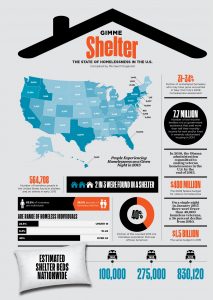One of my meetings today was about SJSU’s forthcoming search for a Chief Information Officer (CIO). A executive search firm will assist with the recruitment, and was on campus today to speak with administrators about the elements of the position. One of my comments was that information technology (IT) on campus is often viewed like a public utility: it’s a necessity, but we only notice it when it’s not properly functioning; the new CIO will have the opportunity to collaborate extensively with folks and make investments to refresh the infrastructure and reduce some of the problems. When I got back to the office I discovered a Pacific Standard magazine story about why the American Internet should be regarded as a public utility. While not directly reacted to IT on campus, I’ll have to share it with the new CIO…
I am on the board of directors of the Council of Colleges of Arts and Sciences (CCAS), a professional organization for deans of colleges of liberal arts and sciences. Fellow board member Kate Conley has published a very timely op-ed about the value of liberal arts eduction in 2017…and beyond. Please check it out!
Super Bowl LI returned to using Roman numerals after a one-year hiatus. It marked the fourth year of the end of my 20-year tradition of taking notes about Super Bowl commercials. Today, however, I’m continuing another long practice: checking out the USA Today Super Bowl Ad Meter. I was happy to see that two of the ads with strong sociological themes did extremely well, landing in the top five most popular commercials: Audi’s “Daughter” at #3, and Budweiser’s “Born the Hard Way” at #4. “Born the Hard Way” commented on current U.S. immigration debates, as did 84 Lumber’s “The Journey Begins” (29th of 66 commercials rated.). “The Journey Begins” is generating lots of interest to see the completion of the journey started in the ad. Hopefully good discussions will ensue after folks watch the entire 84 Lumber commercial.
I recently discovered the Atlas Obscura, a website that helps us “discover curious places—in your neighborhood and around the world.” The listing for Hidden Oakland has 21 entries for “weird attractions and unusual things to do in Oakland, California.” I have only experienced three of these places, so I need to get out more!
The January/February 2017 issue of Pacific Standard magazine includes a sobering infographic about the current state of homelessness in the United States. The infographic is also online, and a thumbnail is below:
The Geographic Information Systems (GIS) software and solutions company Esri has created “Wealth Divides,” an interactive project that maps the division of rich and poor neighborhoods in the United States of America. In addition to the well-known super-stratified city to the west of my current home of Oakland — San Francisco — my childhood home of Atlanta is one of five cities featured (the other three are Boston, New York, and Washington, D.C.). The project is a sobering reminder of the stark divisions of wealth in the U.S. The CityLab website has published a story that provides analysis of the maps for New York, San Francisco, and Washington D.C.
Ever since seeing the first Star Wars movie in the summer of 1977 I have been a huge fan of the series, and it launched my love of science fiction in general. The first six movies’ depiction of people of color have not always been the best — Jar Jar Binks, anyone? — but a Star Wars scholar thinks that Star Wars Episode VII: The Force Awakens and Rogue One: A Star Wars Story have improved the track record. I haven’t seen the newly released Rogue One yet, but will definitely check it out over the holiday break!
Citylab has posted a story about the status of various high-speed railroad projects in the United States. As daily commuter on Amtrak between Oakland and San José, CA I would love for a high speed line to be built along the Capitol Corridor. Alas, nothing appears to be currently on the drawing board, but one can hope!
Recently Ibram X. Kendi’s book Stamped From the Beginning: The Definitive History of Racist Ideas in America was awarded the National Book Award for nonfiction. The Pacific Standard interviewed Dr. Kendi, who provides ideas about how those who want to create an anti-racist United States of America might proceed.
I have recently discovered a great podcast series, Social Sciences Bites. Here’s the series description:
The social world is a world we create, that we all have in common. In this series of illuminating podcasts, hear leading social scientists present their perspectives on how our social world is created, and how social science can help us understand people and how they behave. Each podcast includes a downloadable written transcript of the conversation.
An article on the Pacific Standard website provides additional information. This podcast series will be very valuable in the Unites States if expected significant policy changes occur in President Trump’s administration. One future podcast could be with SJSU sociology professor Scott Myers-Lipton, who argues that President Trump should launch a civic works program.

